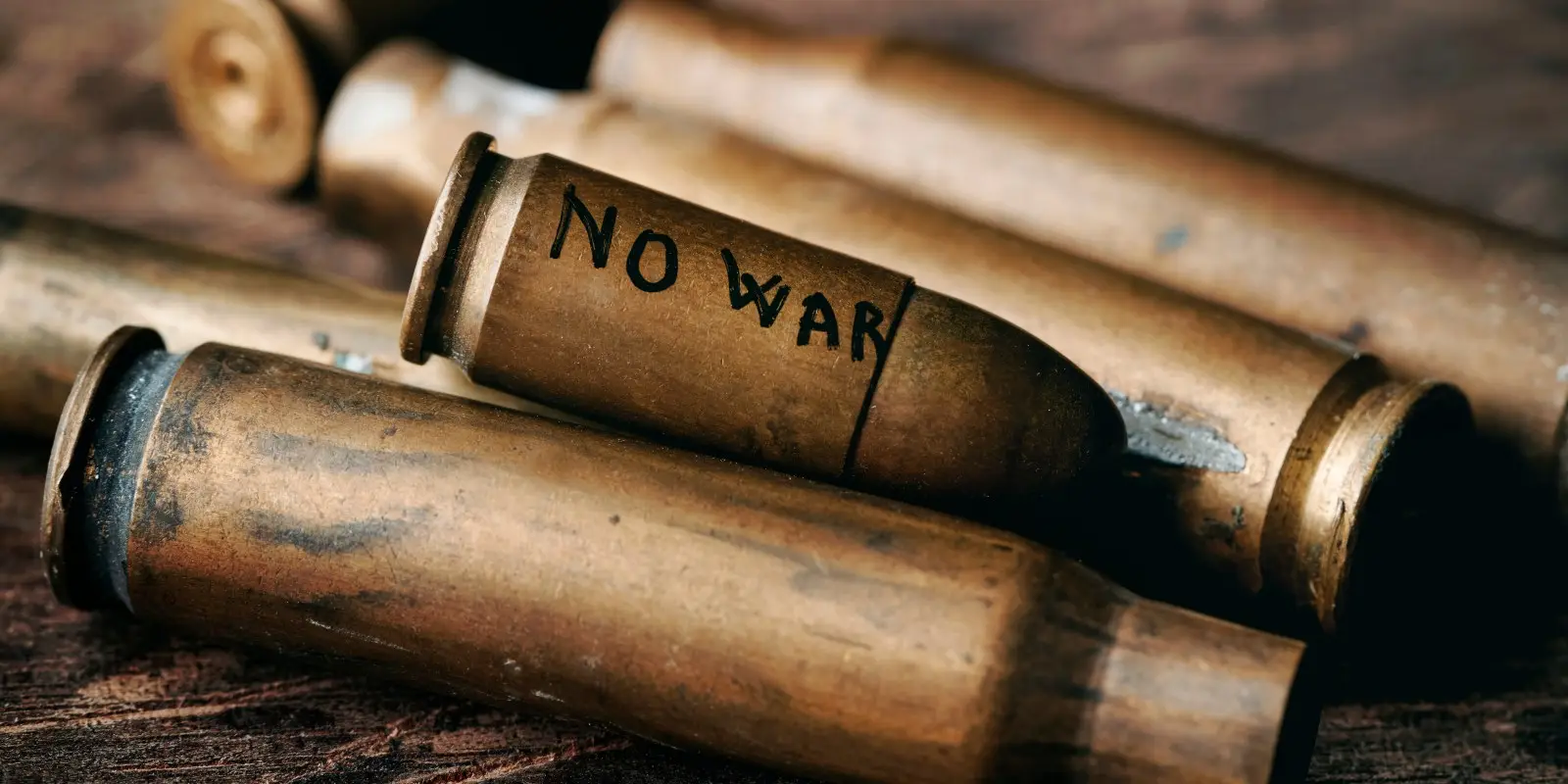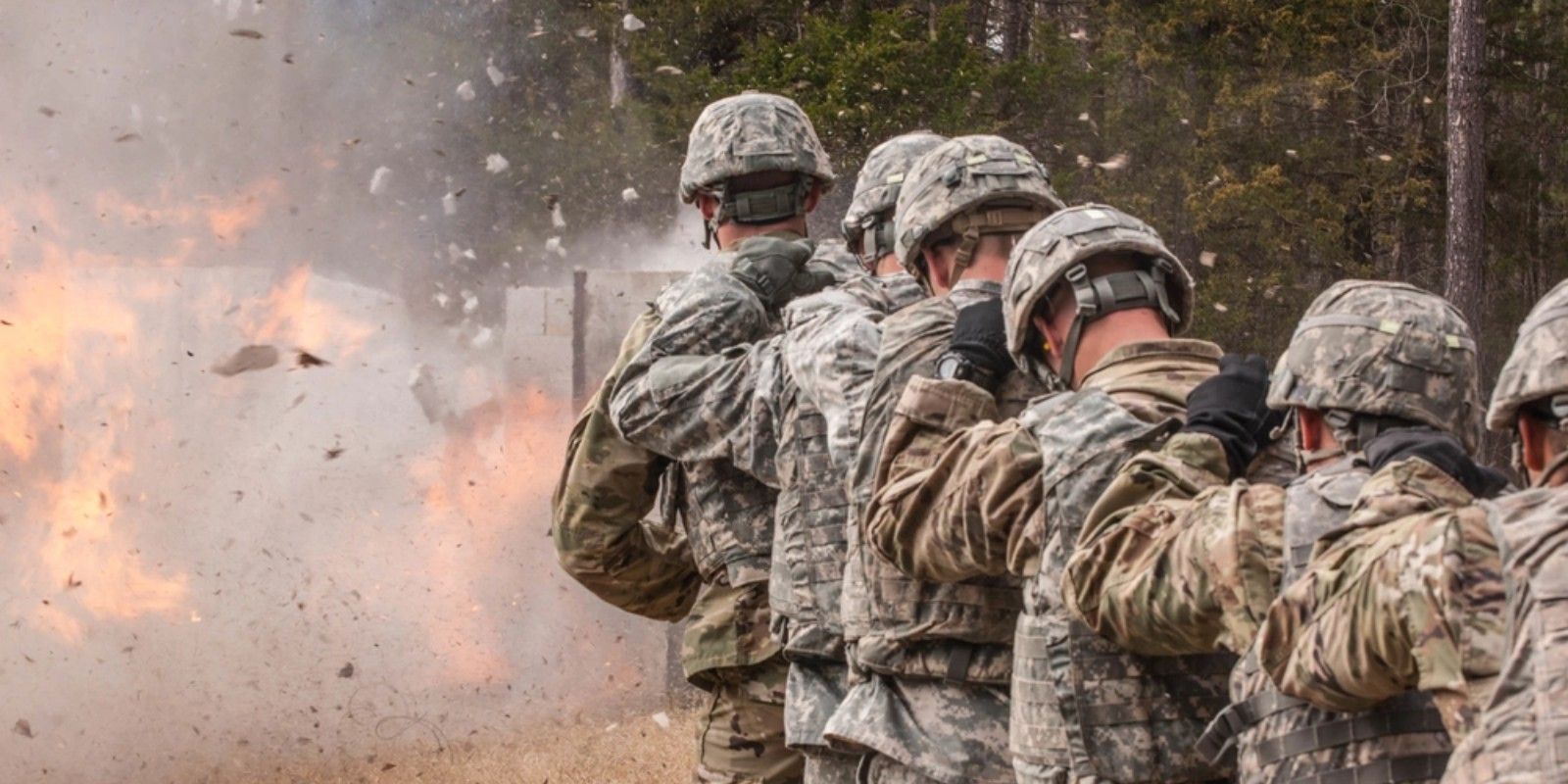HERE'S WHAT IT REALLY MEANS TO BE A CONSCIENTIOUS OBJECTOR
By Buddy Blouin

Defending America is a noble cause, but so too is leading a life without violence. War is violent by nature, and those who reject such actions due to their morals or beliefs have different choices when it comes to military service. If you're a conscientious objector, options are available for you to avoid betraying your belief system while also serving your country. Get to know the facts about how the military handles these situations and your rights as an objector.
Related read:
The Selective Service Runs the Draft: What You Need To Know About ItWhat Is a Conscientious Objector?
People who claim freedom of thought, conscience, or religion may refuse to serve in the armed forces and are known as conscientious objectors or conchies. As a result of a crisis of conscience, some may also object to working for the military-industrial complex. Politics, expediency, and self-interest don’t qualify for this designation. Those who do not wish to conscientiously participate in violence can be put into alternative services to help military forces in many cases, but they must prove that their beliefs drive this decision and their lifestyle must support it. Such options exist here in the United States, including the opportunity to serve in the Armed Forces but through a noncombatant role. Internationally, May 15th is recognized as International Conscientious Objection Day by many organizations. Different countries have different views and rules on conscientious objection to service.Hacksaw Ridge Provided a Platform
In 2016, Mel Gibson’s critically acclaimed conscientious objector movie Hacksaw Ridge brought the real-life story of Desmond Doss to the big screen. Starring Andrew Garfield as Doss, the film shows his life and his struggle to serve America while staying true to his beliefs. It was based on a 2004 documentary called The Conscientious Objector. Doss was a Seventh-day Adventist who enlisted in the U.S. Army following the attack on Pearl Harbor. He was willing to serve as a medic to help save lives, but he refused to kill due to his faith and even went so far as to refuse to even use a rifle. In the end, Doss ended up being a true American hero. While serving as a conscientious objector, he was able to save the lives of 75 Soldiers at Hacksaw Ridge. This bravery would see Doss receive the Medal of Honor from President Harry Truman.Selective Service System and Conscientious Observers
If you're a conscientious objector, you’ll have to register as such with the Selective Service System. If there's a draft and you're notified that you're qualified for the military, you’ll have the chance to gain the classification of a conscientious objector (CO). To register as a CO, you’ll have to appear before your local board and explain to them your beliefs. You may use personal witnesses that support your claim and attest to your character and morals. You can also use written documents to explain your beliefs. This can include how you came to these beliefs and how they’ve influenced your life. From here, the board will decide whether or not your conscientious objector status will be allowed based on the evidence presented. Appeals can be made if you disagree with the board’s decision at the Selective Service district appeal board. Should the appeal board deny your claim, however, and the vote isn’t unanimous, an appeal to the national appeal board can also be made. Both alternative service and service through noncombatant roles without training/duties using a weapon are available to conscientious objectors. The American Armed Forces work with those who can serve but morally reject violence even in war. You can also submit a “1-A-0 conscientious objector application” when applying to the U.S. Army. The Selective Service Alternative Service Program is a program for COs that works to find local employment that helps society in terms of safety, healthcare, or interest. Common examples include education, healthcare, and conservation. These programs aim at equating to the same amount of time, 24 months, someone would serve in the military. Being a conscientious objector is a path based on faith and a personal moral code that is a testament to one’s faith. It’s a personal journey that can come with its own set of hurdles, but if it’s the path for you, there are service options and alternatives available to those who walk through life down this path.More like this:
Desmond Doss Saved Over 75 Lives All While Refusing to Carry a GunAs an Amazon Associate, MyBaseGuide may earn commission through affiliate links on this page.
SHARE:
TAGS:
Conscientious Objector
draft
Enlisting
Selective Service System
JOIN OUR NEWSLETTER
Get the latest news and military discounts



